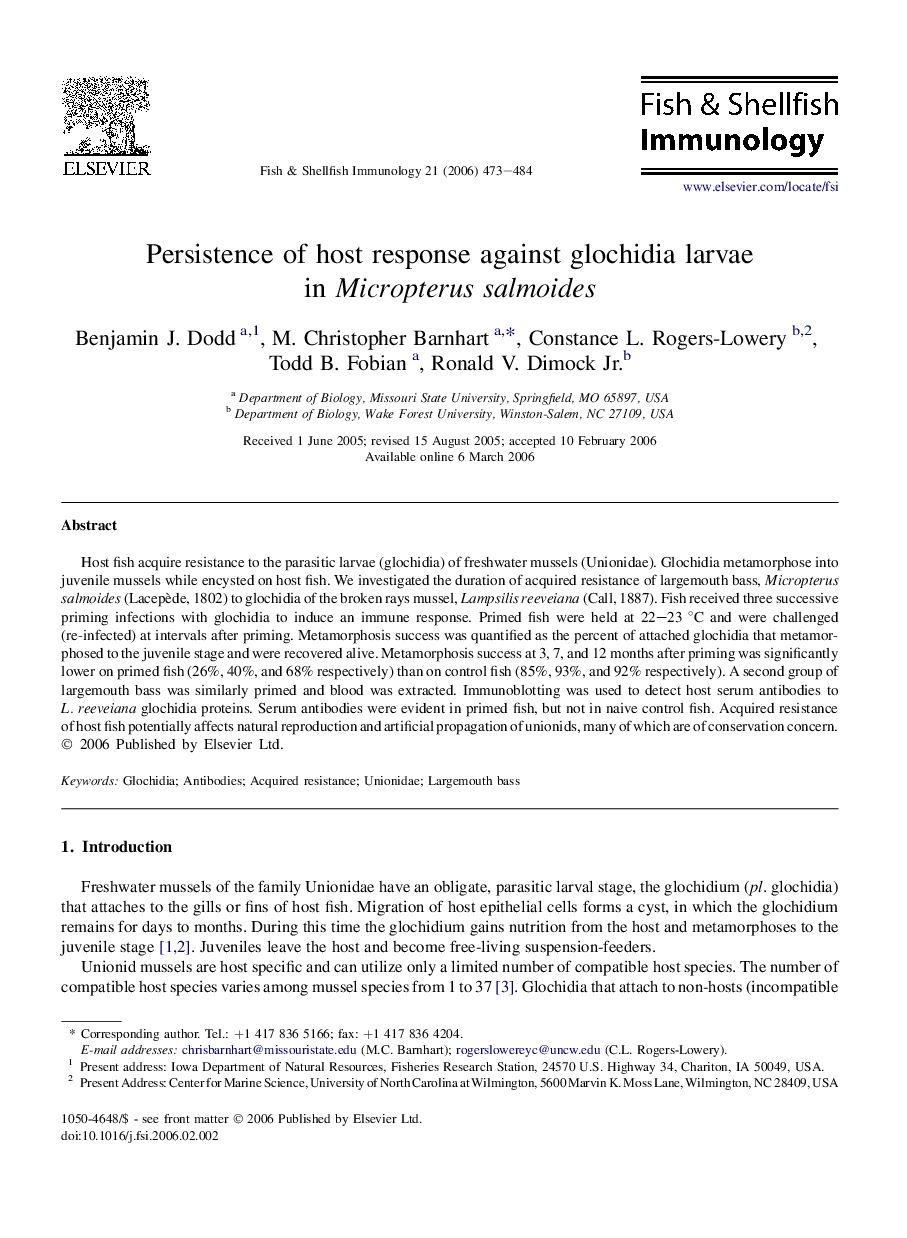| Article ID | Journal | Published Year | Pages | File Type |
|---|---|---|---|---|
| 2433582 | Fish & Shellfish Immunology | 2006 | 12 Pages |
Host fish acquire resistance to the parasitic larvae (glochidia) of freshwater mussels (Unionidae). Glochidia metamorphose into juvenile mussels while encysted on host fish. We investigated the duration of acquired resistance of largemouth bass, Micropterus salmoides (Lacepède, 1802) to glochidia of the broken rays mussel, Lampsilis reeveiana (Call, 1887). Fish received three successive priming infections with glochidia to induce an immune response. Primed fish were held at 22–23 °C and were challenged (re-infected) at intervals after priming. Metamorphosis success was quantified as the percent of attached glochidia that metamorphosed to the juvenile stage and were recovered alive. Metamorphosis success at 3, 7, and 12 months after priming was significantly lower on primed fish (26%, 40%, and 68% respectively) than on control fish (85%, 93%, and 92% respectively). A second group of largemouth bass was similarly primed and blood was extracted. Immunoblotting was used to detect host serum antibodies to L. reeveiana glochidia proteins. Serum antibodies were evident in primed fish, but not in naive control fish. Acquired resistance of host fish potentially affects natural reproduction and artificial propagation of unionids, many of which are of conservation concern.
